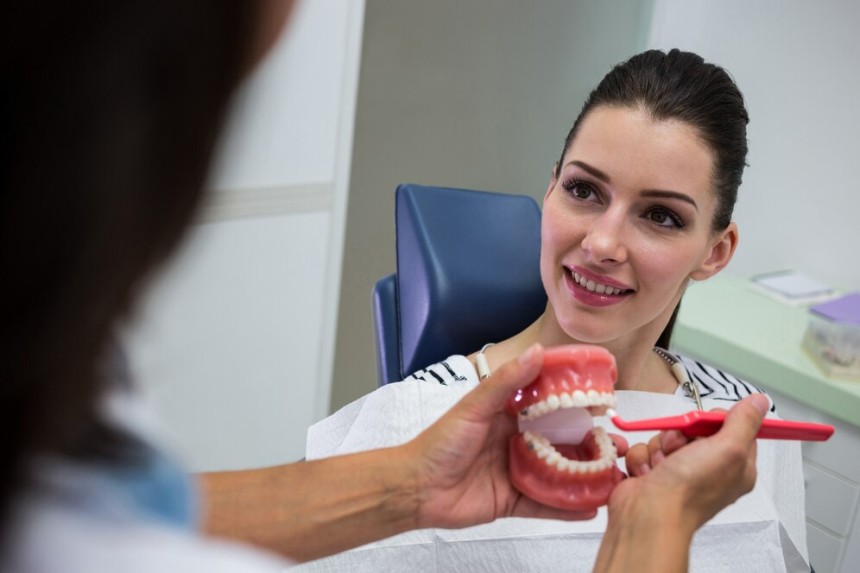
Everything You Should Know About Getting Dental Crowns
Looking for quality dental crowns in Stuart?
2025-03-31 08:30:12 - Stuart Smiles
Dental crowns are one of the most effective solutions in restorative dentistry. Whether you're dealing with a weakened or damaged tooth, a crown can restore the tooth’s function, structure, and appearance. While they offer a long-term solution to a variety of dental issues, many people still have questions about the process of getting a dental crown. If you’re considering getting dental crowns in stuart, this guide will provide you with everything you need to know about the procedure, benefits, types, and aftercare.
What is a Dental Crown?
A dental crown is a cap that fits over a tooth to restore its original shape, size, strength, and appearance. Crowns are typically used for teeth that have become weak due to decay, fracture, or after a root canal treatment. They can also be used to improve the aesthetic appearance of discolored or misshapen teeth. Crowns are custom-made to match the color, shape, and size of your natural teeth, blending seamlessly into your smile.
Why Do You Need a Dental Crown?
There are several reasons why you might need a dental crown, including:
- To Protect a Weakened Tooth: If a tooth has been damaged by decay or fracture, a crown can strengthen it and prevent further damage.
- After Root Canal Treatment: Teeth that have undergone a root canal can become brittle, and a crown helps protect and restore the tooth’s function.
- To Improve the Appearance of Teeth: Crowns can be used to cover discolored, chipped, or misshapen teeth, enhancing your smile’s appearance.
- To Hold a Dental Bridge in Place: Crowns can support dental bridges, filling gaps caused by missing teeth.
- To Restore a Large Filling: When a large filling is no longer sufficient, a crown provides the strength and stability the tooth needs.
The Process of Getting a Dental Crown
The process of getting a dental crown typically involves two appointments with your dentist. Here’s what you can expect:
- Initial Consultation and Tooth Preparation: During your first appointment, your dentist will examine the tooth and take X-rays to assess the extent of the damage. If a root canal is necessary, it will be performed beforehand. After numbing the area, your dentist will remove any decay, shape the tooth, and take impressions of your tooth to create a custom crown.
- Temporary Crown: While your permanent crown is being made, your dentist will place a temporary crown to protect the tooth. This temporary crown is usually made from acrylic or metal and will stay in place until the final crown is ready.
- Permanent Crown Placement: Once the permanent crown is fabricated (usually within a couple of weeks), you’ll return to the dentist’s office. Your dentist will remove the temporary crown, check the fit and color of the permanent crown, and cement it in place after confirming that it fits comfortably and functions properly.
Types of Dental Crowns
There are several types of materials used to make dental crowns, and each has its benefits:
Porcelain Crowns: These are the most natural-looking option and are ideal for visible teeth, providing a seamless match with the surrounding teeth.
Ceramic Crowns: Similar to porcelain, ceramic crowns also blend well with natural teeth and are often used for front teeth.
Metal Crowns: These are incredibly durable and are typically used for molars where aesthetics are less of a concern. Metal crowns are resistant to wear and tear.
Porcelain-Fused-to-Metal Crowns: These crowns combine the strength of metal with the natural appearance of porcelain. They are commonly used for back teeth.
Resin Crowns: Resin crowns are less expensive but tend to wear down faster and may not be as durable as other options.
Benefits of Dental Crowns
Dental crowns offer numerous benefits:
- Durability: Crowns are designed to last for many years with proper care, providing long-term protection.
- Improved Functionality: Crowns restore the full functionality of a damaged tooth, allowing you to chew and speak normally.
- Aesthetic Improvement: Crowns can significantly enhance the appearance of your smile, especially when made from porcelain or ceramic materials.
- Comfort: Crowns are custom-fitted to your tooth, ensuring that they feel natural and comfortable.
Aftercare and Maintenance
After getting a dental crown, proper care is essential to ensure its longevity. Here are a few tips:
Practice Good Oral Hygiene: Continue to brush and floss daily, especially around the crown, to prevent plaque buildup and gum disease.
Avoid Hard Foods: While crowns are durable, it’s important to avoid biting on hard foods or objects that could damage the crown.
Regular Dental Checkups: Regular visits to your dentist in stuart ensure that your crown remains in good condition and that any issues are caught early.
Conclusion
Getting a dental crown is a straightforward and effective solution for restoring a damaged or weakened tooth. The process involves two visits, and the result is a functional and aesthetically pleasing restoration that can last for many years. Whether you need a crown to protect a tooth, restore its function, or improve its appearance, a dental crown is a versatile and reliable treatment. If you’re considering a crown, consult your dentist to determine the best material and treatment plan for your unique needs.
